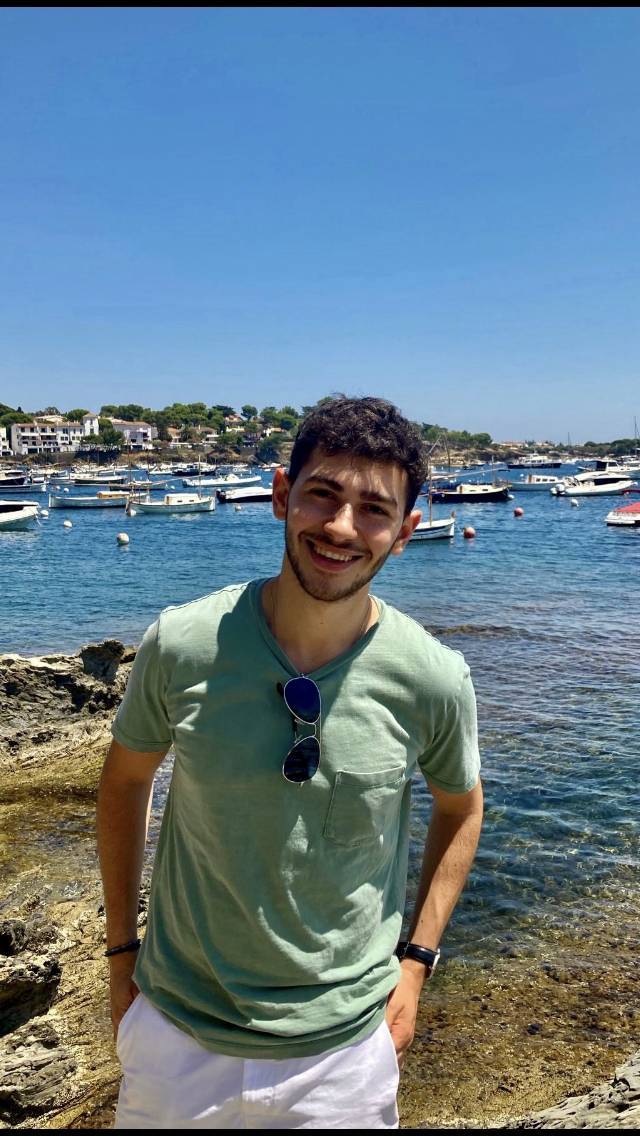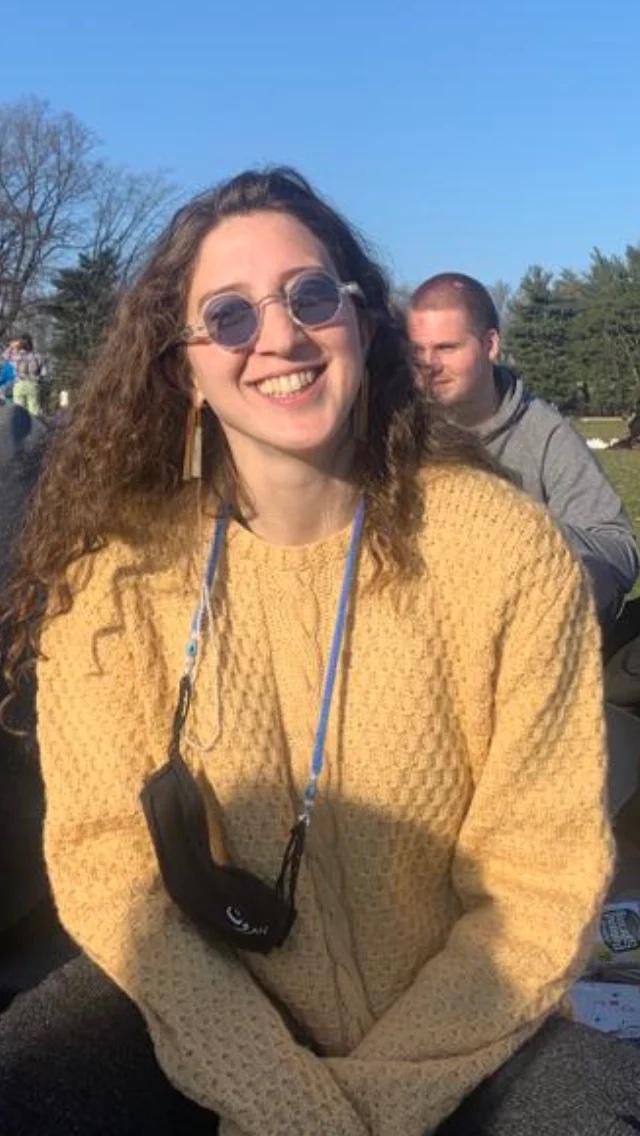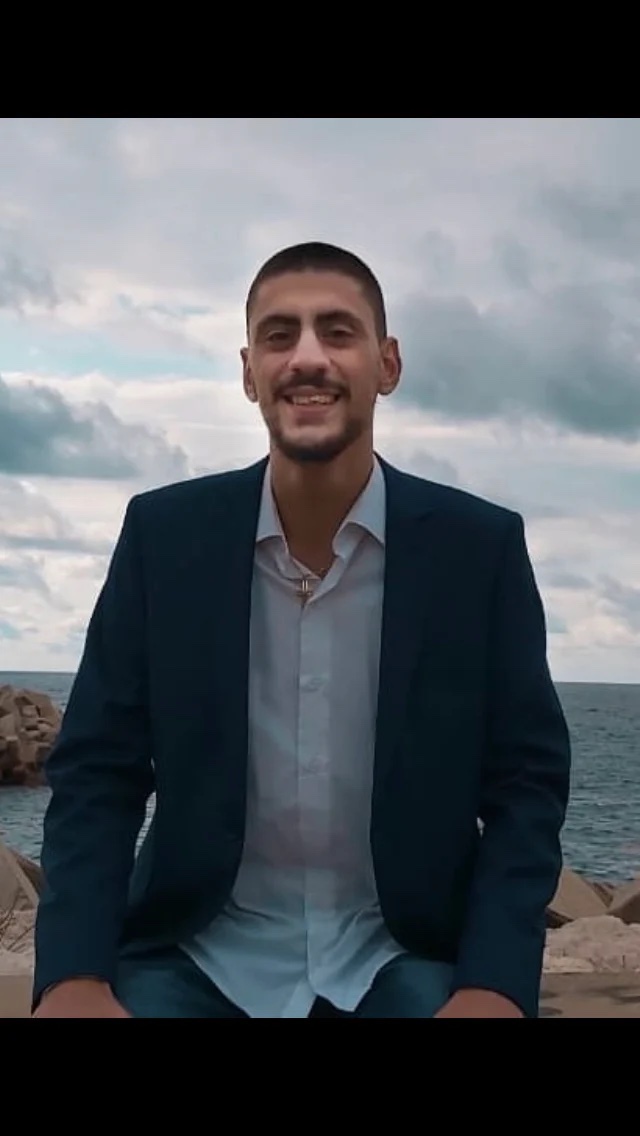
Anthony Trad, 20, a Lebanese university student: “Young people who aspired to radical change had high hopes. Later, they felt deep anger in the face of corruption that is entrenched in the government." (Courtesy of: Camille Ronsin)
When he talks about Lebanon, Anthony Trad, 20, does not hide the unconditional love he feels.
And yet, “like most young Lebanese, I have an ambivalent relationship with Lebanon,” he told L’Orient-Le Jour.
“On the one hand, our country is sinking deeper and deeper into its crises, and on the other hand, there are these courageous, resilient people who resist despite everything.”
Trad does not, however, hide his disillusionment with the situation in his country, more than three years after the Oct. 17, 2019 protest movement.
“Young people who aspired to radical change had high hopes. Later, they felt deep anger in the face of corruption that is entrenched in the government,” he said.
“When I was in Lebanon in the summer, I saw the misery and despair in people’s eyes,” added Trad, who is studying in France.
“I felt the suffering of the country, but I also saw these young people who continued to study, to keep going, and to party, despite everything,” he said, adding, “this is when I felt the pride of the Lebanese and especially their immense desire to do something for their country, which gave me a lot of hope.”
“I know that I will never be happy if I don’t do something to help my country get back on its feet. I am waiting for the day I’ll come back to settle here forever,” Trad said.
 Aya Abdallah: "I thought we, the young people, could change things."
Aya Abdallah: "I thought we, the young people, could change things."
Aya Abdallah just finished her master’s degree in architecture at Columbia University in New York. Also torn between disappointment and hope, she told L’Orient-Le Jour, “I thought we, the young people, could change things. I was confident that change would happen.”
The young architect wrote a book with two other friends, titled Testify4Beirut, which they published in 2021 to keep alive the memory “of all the suffering experienced by the Lebanese” in the aftermath of Aug. 4, 2020, Beirut port explosion. She said Lebanon’s May 15 elections shattered her illusions.
“I realized that as an individual I cannot change anything. That created in me a terrible feeling of discouragement,” Abdallah told L’Orient-Le Jour.
But when she “saw young people continue to work and create urban projects to improve the conditions of the people and the country, it gave me little hope.”
The sense of attachment to Lebanon is shared by many young people who, despite the acute crises hitting their country, remain convinced that they can still change things.
 Mary Fersan: "Lebanon needs us more than ever."
Mary Fersan: "Lebanon needs us more than ever."
For Mary Fersan, a journalism student at the Lebanese University, “Lebanon needs us more than ever. And if despite all that we as Lebanese have endured, we have been able to stand up, nothing can stop us.”
“I was completely disheartened and frustrated after the revolution,” Fersan said.
Fersan said had only one thing on her mind: to pack her bags and leave the country to pursue her studies abroad. But after the port explosion and the ensuing massive youth mobilization to aid the people of the affected neighborhoods, she found her lost sense of patriotism.
“It was a feeling even stronger than before. And above all, an immense pride in all the young people who worked so hard to help others,” she said.
Young people are the changemakers
Salim Bitar, a first-year business student at Sagesse University, also strongly believes that it is the youth who will bring about change in the country.
 Serena Haddad: "If we all leave, who will we leave the country to?"
Serena Haddad: "If we all leave, who will we leave the country to?"
“We are a passionate generation, and we have our own beliefs that differ from those of our parents,” he told L’Orient-Le Jour.
“We don’t want to carry arms to assert our rights. We want to make our voices heard, by electing people who have the same vision as us. It will happen, but little by little because it takes a lot of time to change mentalities,” Bitar added.
Serena Haddad, a journalism student, also believes in the role of young people “who aspire today to a state of law where governance belongs to those who deserve it, not to those who have weapons.”
“We are a generation that upholds openness and dialogue,” she said. “Our only weapon is our education, which is unfortunately in danger. But if we all leave, who will we leave the country to? To those who destroyed it?”
Meanwhile, many young Lebanese admit that they have lost all hope for change in the near future.
 Jorge Ghorra: “If you have to help Lebanon to recover, you have to do it economically, by investing or opening a business or a restaurant."
Jorge Ghorra: “If you have to help Lebanon to recover, you have to do it economically, by investing or opening a business or a restaurant."
Jorge Ghorra, who is studying economics and finance at Lille Catholic University in France, is one of them.
Ghorra said he does not plan to return to Lebanon any time soon, “because there is no future for young people today.”
But this does not mean he’s abandoning the country. “If you have to help Lebanon to recover, you have to do it economically, by investing or opening a business or a restaurant,” he said. “It’s the only way to rebuild the country they are destroying.”
“Ever since I was a child, I have heard my parents say: tomorrow things will be better,” said Elie Alwan, a final-year computer engineering student at the Lebanese University.
 Joe Kazan: "Even if I have the opportunity to leave the country today, I won’t."
Joe Kazan: "Even if I have the opportunity to leave the country today, I won’t."
“We tried a lot: the October uprising, the youth mobilization ... What good did they do? And if the Aug. 4 [blast] didn’t change things and shuffle minds, what will? I have no hope in this country.”
Joe Kazan, a business student at the Lebanese University, has a similar opinion. He said that the silence and resignation of the Lebanese have left him with a bitter disappointment.
“If after the Aug. 4, 2020 [blast], the people have not risen up against the government, what will move them?” he said.
“I want to believe that the people will rise up to take the country back into their own hands,” he added. “Even if I have the opportunity to leave the country today, I won’t. I am too attached to my land to leave it in the hands of these criminals.”
This article was originally published in French in L'Orient-Le Jour. Translation by Sahar Ghoussoub.
